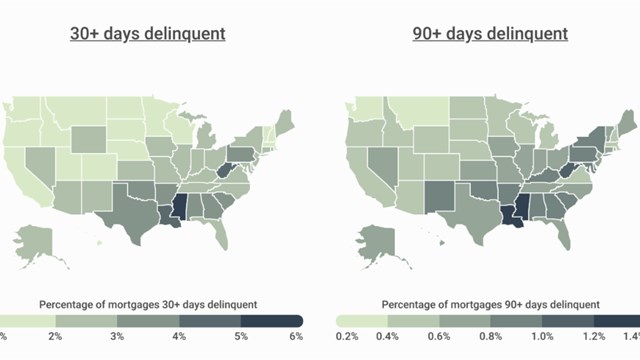Social distancing, lockdowns, quarantine, remote work, distance learning—all new terms to most of us just a few months ago—have not just entered our everyday vocabularies; they have changed the way we live our everyday lives. In a time when something as simple—and as socially fundamental—as a handshake is ill-advised, the imposed separation between us and our family, friends, neighbors, and colleagues can feel like an extreme shake-up of our societal norms.
Among the places where this enforced distancing is being felt most acutely is in residential communities such as co-ops, condos, and HOAs. Not only has the coronavirus pandemic separated people from their neighbors and cast a pall of risk and doubt over everything from food deliveries to elevator rides, it has forced boards and communities to reevaluate how they will meet their formal meeting requirements and conduct the business of their corporation or association.
Governing Documents vs. Current Reality
While more recently drafted condo, co-op, and HOA governing documents may already contain language pertaining to electronic meeting and voting, older ones written before these became common business practices may be silent on the issue. However, this absence of language shouldn’t be construed as a huge problem, says Ellen Shapiro, partner with the law firm Marcus Errico Emmer & Brooks in Braintree, Massachusetts. “If it’s not prohibited, it’s permitted,” she says. “Given the extraordinary situation we find ourselves in today, a court would be inclined to favor a board that wanted [to implement] online meeting for inclusivity, even if the documents were written before anyone would have thought to do this.”
That said, most legal pros agree that it’s a good idea to amend your documents to explicitly permit online and electronic meetings and other necessary business—including both monthly board meetings and annual association or corporation meetings. “When I draft an amendment,” Shapiro continues, “I specifically include monthly meetings. Most docs already provide that the board can act without a meeting by written consent if unanimous, but the better thing is to have a meeting in a virtual medium to flesh out the issues.
“The best solution,” Shapiro stresses, “is to amend your documents to permit remote meetings via electronic means, electronic voting, and the like. It’s the single best thing a board can do. Having said that, we know it [can be] a difficult process due to unit owner apathy, fear of the unknown, and cost.”
Unique New Jersey
New Jersey’s requirements for residential communities include some that aren’t found in other states at the same level of specificity. This specificity is a result of what’s typically referred to as ‘the Radburn decision’ and the subsequent law enacted based on it. In a nutshell, the Radburn case and its decision regulate and govern residential community elections in New Jersey. Signed by former governor Chris Christie in 2017, the law governs procedures for board elections and voter participation rights, including the counting of ballots in a public forum and the requirement that certain board votes be conducted in public for the decision to be binding.
More recently, “Governor Murphy amended some rules and legal requirements in Title 15 after the Community Associations Institute (CAI) urged remote annual and member meetings,” explains Chris Florio, a partner with Stark & Stark, a law firm located in Lawrenceville. “Requirements established under the Radburn decision were adhered to and respected as much as possible.
“When we do annual meetings right now,” Florio continues, “there’s no way to comply completely with Radburn. We can’t count ballots in front of owners—which it requires—though we are doing this on [the online meeting platform] Zoom. We can’t extend board terms vis-à-vis Radburn either, but we can’t postpone elections indefinitely. We do keep ballots for 90 days, as per Radburn, if anyone wants to see them. Associations are sticking to the spirit of the Radburn decision as well as possible.”
Meeting Virtually
Co-op, condominium, and HOA boards must hold regular meetings to conduct and transact the annual business of the corporation or association. The risks of COVID transmission associated with being in an enclosed space with people from outside of one’s household has made such meetings impractical for most boards. Meeting rooms are generally small and often poorly ventilated, and even when healthy people with recently cleaned hands sit six feet apart, asymptomatic carriers can still spread the virus through their aerosolized respiratory droplets. As a result, most boards have switched to virtual meetings.
In actuality, the trend toward meeting online was well underway before the COVID-19 crisis; the pandemic just hastened more boards’ adoption of the practice. “Boards [in New York] have been permitted to meet via conference type call for a long time,” says Andrew B. Freedland, shareholder with the Manhattan office of law firm Anderson Kill who specializes in community law governing co-op and condominium properties. “Under Section 708(c) of the Business Corporation Law (BCL), unless restricted by the certificate of incorporation or the bylaws of a corporation, one or more board members can participate by means of a conference telephone,” he continues.
“The stipulation is that all persons must be able to hear each other at the same time—so a Zoom or other type of group video call certainly complies with this provision. As a result, the vast majority, if not all, of the boards I represent have been meeting through some type of video chat platform since March,” notes Freedland. With many people being away for the summer—whether on their usual seasonal retreats or with a specific COVID-related impetus—virtual meetings have allowed boards to continue to obtain quora and conduct business while members are away from their usual place of residence.
Freedland notes an important consideration about meeting virtually: “I have not seen any bylaws personally which restrict this type of meeting, but that’s not to say that they may not be out there,” he cautions. “So check your bylaws and certificate of incorporation.”
The Annual Meeting
Most residential communities meet at least once a year to elect officers, conduct business that requires community input, and keep shareholders and owners abreast of what’s happening with their most important investment—their home. It is one of the primary duties of the board to hold an annual shareholder or owner meeting, and in virtually all states, these meetings are mandated by law. Traditionally, these meetings are held in person, indoors, and there are certainly times when they can become loud and confrontational—all of which increases risk of COVID-19 transmission. So what options does a responsible board have to fulfill its duty under the law while still being mindful of public health?
“Most of our clients are doing remote meetings, either by Zoom or Microsoft Teams,” says Florio. “I do have some that have done in-person meetings, but have held them outside in a parking lot or outside the clubhouse while maintaining social distancing. They are using masks, but not uniformly. One community in North Jersey instituted masking as a requirement. One resident is fighting it.”
Like Shapiro, Florio strongly recommends that associations amend their bylaws now to get electronic voting and meeting language into existing documents, because doing so will make Radburn requirements easier to uphold.
Most of Freedland’s clients have moved to virtual annual meetings as well, he says, “Though I do think the upcoming annual meeting season, which was delayed from its usual May/June time period, may be challenging. Having Zoom annual meetings for smaller buildings isn’t difficult, but I think some of the larger buildings with 200 or more units may find an annual meeting video call a challenge. Collecting proxies and ballots also will be different. Handing documents to a person at a meeting is much easier than hundreds of people emailing, faxing, or mailing them back. I had a Zoom annual [meeting] for a seven-unit building, and it was flawless—but the greater the numbers, the more room for complications.”
What if a community can’t—or won’t—hold their meeting entirely in a virtual format? Shapiro has a hybrid solution. “With some boards, I’ve set up a procedure wherein, assuming the documents allow proxies, [we] appoint one person as the holder of a directed proxy for purposes of establishing a quorum and then a second voting proxy for the individuals who would have voted at the meeting. This must be done individually for each owner. If a unit is owned by more than one person, only one is necessary for proxy—no splitting votes between, say, a husband and wife.” On the date of the meeting, the designated person opens the envelopes and counts them to first establish a quorum and then to tabulate the votes that determine the board election or any other voting matter, says Shaprio. “Often,” she continues, “I have been designated the proxy holder, and I’m the only one who knows who anyone voted for.”
Shapiro stresses that if voting by electronic means is already permitted by the corporation’s or association’s documents, then it should be pursued for purposes of the annual meeting. That said, she recommends maintaining a traditional voting option for residents who can’t or won’t vote electronically—those without computers or access to WiFi, for example. Even with electronic voting allowed, it may only apply to the vote itself, not to the quorum count, as recently happened in the author’s building. In his 54-unit co-op in Upper Manhattan, the quorum vote had to be conducted by paper ballot separately from the actual ballot for the board election. The annual meeting itself was conducted online through Zoom.
Potential Pitfalls
“I think keeping residents engaged has probably been tough,” says Freedland. Considering the documented diaspora of New Yorkers as well as residents of other dense urban areas this spring and summer, “Communicating with shareholders has been a little more challenging,” he continues. ”Most buildings keep lists of email addresses, and continuing the communications by email has been helpful for day-to-day business. While official notices usually must be mailed, they can be sent by a secondary means in addition, which could be via email as a courtesy.”
Shapiro offers an in-person alternative that some of her clients have used successfully: meeting outdoors, with masks and social distancing strictly enforced. Owners bring their own chairs, the board has ample hand sanitizer on hand, and everyone is respectful of the limitations of the current crisis. It can be difficult to hear others speaking from a distance outside, however, so some residents bring their own megaphones or mics. “You do the best you can and think outside the box to keep stuff going,” says Shapiro. “You can’t just throw up your hands because of COVID and stop functioning. You have to find ways to succeed.”
A J Sidransky is a staff writer for The New Jersey Cooperator, and a published novelist.










Leave a Comment